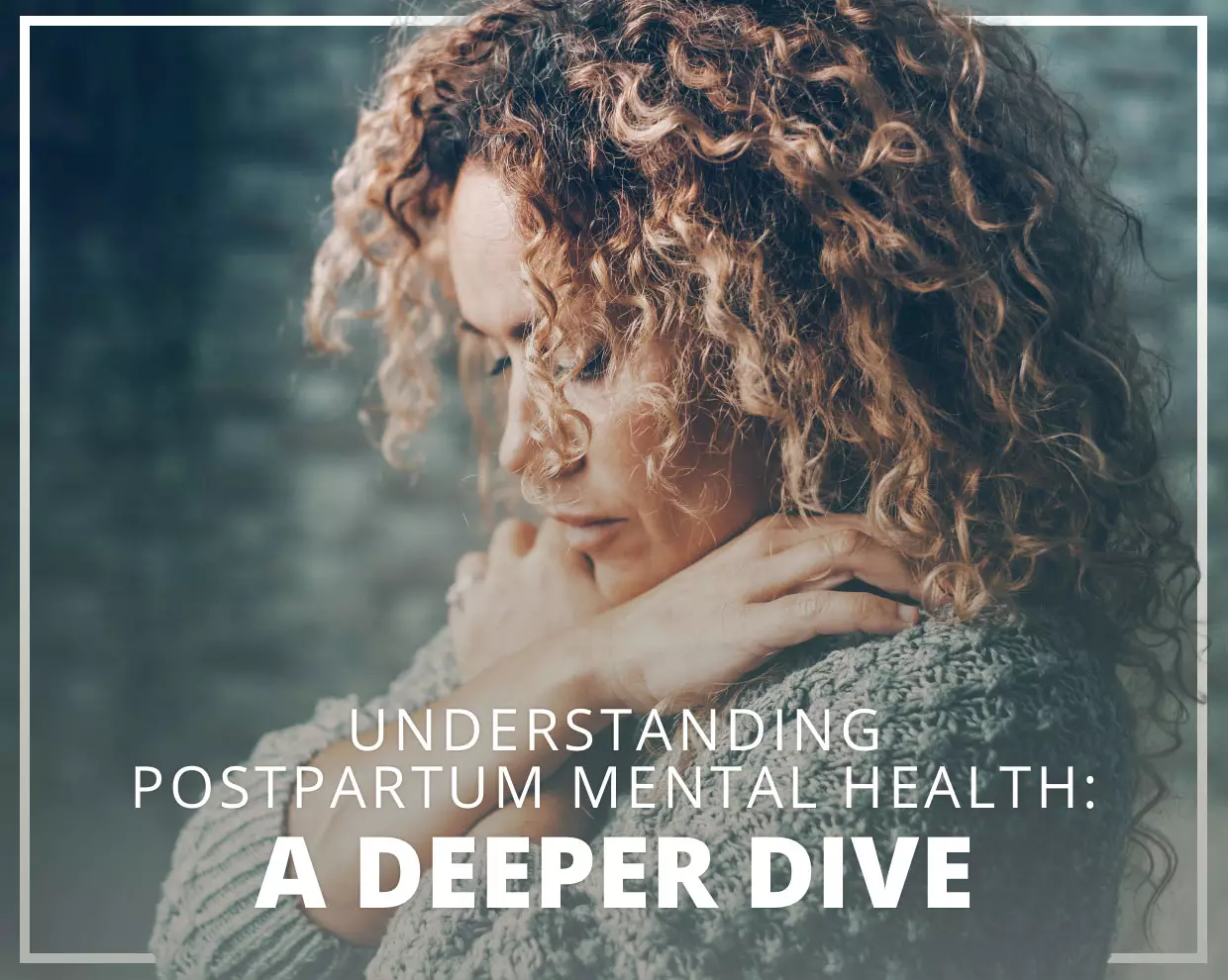Postpartum mental health refers to the psychological state of a woman after she has given birth. It's a crucial aspect of overall health that can significantly impact both the mother and the child. Postpartum mental health issues can manifest in various forms, from mild mood disturbances to severe mental illnesses. [1]
The Hormonal Rollercoaster
After childbirth, levels of hormones such as estrogen and progesterone drop dramatically. This sudden shift can lead to mood swings and contribute to conditions like postpartum depression. Additionally, changes in blood volume, blood pressure, and metabolism can also contribute to fatigue and mood changes. [2]
The Psychological Impact
The transition to motherhood can be a significant source of stress, leading to increased vulnerability to mental health issues. Factors such as a history of mental health issues, a difficult pregnancy or childbirth, lack of social support, and the stress of caring for a new baby can all increase the risk of developing postpartum mental health issues. [3]
The Social Aspect
Factors such as isolation, lack of support, and societal pressure to be the 'perfect' mother can also contribute to the development of postpartum mental health issues. The role of technology in mental health is also significant. Digital platforms have emerged as avenues of support for caregivers suffering from postpartum mental health distress. [4]
Common Mental Health Issues Faced by Mothers Postpartum: More Than Just 'Baby Blues'
There are several mental health conditions that can arise during the postpartum period. These include:
• Postpartum Depression (PPD): This is the most common mental health issue faced by new mothers. Symptoms can include persistent feelings of sadness, loss of interest in activities, difficulty bonding with the baby, and even thoughts of harming oneself or the baby. PPD is a serious condition that requires immediate medical attention. It's estimated that the prevalence of early PPD is around 8.3%, and late PPD is around 12.9%, resulting in a one-year cumulative incidence of PPD of 18.1%. [5]
• Postpartum Anxiety: While some level of anxiety is normal for new mothers, postpartum anxiety can be debilitating. Symptoms can include constant worry, racing thoughts, and physical symptoms like dizziness, hot flashes, and nausea. [6]
• Postpartum Psychosis: This is a rare but severe mental illness that can occur after childbirth. Symptoms can include hallucinations, delusions, paranoia, and confusion. It's a serious condition that requires immediate medical attention. [7]
The Importance of Mental Health Support for New Mothers: You're Not Alone
Mental health support for new mothers is crucial. It's important for mothers to understand that they're not alone and that help is available. Mental health issues are not a sign of weakness or failure, but rather a common part of the postpartum experience for many women.
Support can come in many forms, including professional mental health services, support from family and friends, community resources, and online support groups. Early detection and treatment of postpartum mental health issues can significantly improve outcomes for both the mother and the child.
Ways to Improve Postpartum Mental Health: A Path to Wellness
Improving postpartum mental health involves a combination of professional help, self-care strategies, and building a strong support network.
• Professional Help: If you're experiencing symptoms of a postpartum mental health condition, it's important to seek professional help. This could involve seeing a psychologist or psychiatrist, who can provide treatments such as cognitive-behavioural therapy or medication. In some cases, joining a group therapy session with other new mothers experiencing similar issues can also be beneficial.
• Self-Care Strategies: Self-care is crucial during the postpartum period. This can involve ensuring you're eating a healthy diet, getting regular physical activity, and getting as much sleep as possible. It's also important to take some time for yourself, even if it's just a few minutes each day, to do something you enjoy. This could be reading a book, taking a bath, or simply sitting quietly with a cup of tea.
• Support Networks: Building a strong support network can also play a key role in improving postpartum mental health. This could involve reaching out to friends and family, joining a local mothers' group, or connecting with other mothers online.
Conclusion
The postpartum period is a time of significant change and adjustment, and it's normal to experience a range of emotions during this time. However, if you're feeling persistently low, anxious, or not yourself, it's important to seek help. With the right support and treatment, postpartum mental health conditions can be effectively managed, and you can enjoy this special time with your new baby.
References:
1 Postpartum psychiatric disorders: Early diagnosis and management
2 Mechanisms of action of estrogen and progesterone
3 Postpartum Depression
4 Social Support, Postpartum Depression, and Professional Assistance: A Survey of Mothers in the Midwestern United States
5 Prevalence and incidence of postpartum depression and environmental factors: The IGEDEPP cohort
6 Postpartum Anxiety
7 Postpartum Psychosis

 EU Store
EU Store  UK Store
UK Store NZ Store
NZ Store AU Store
AU Store













